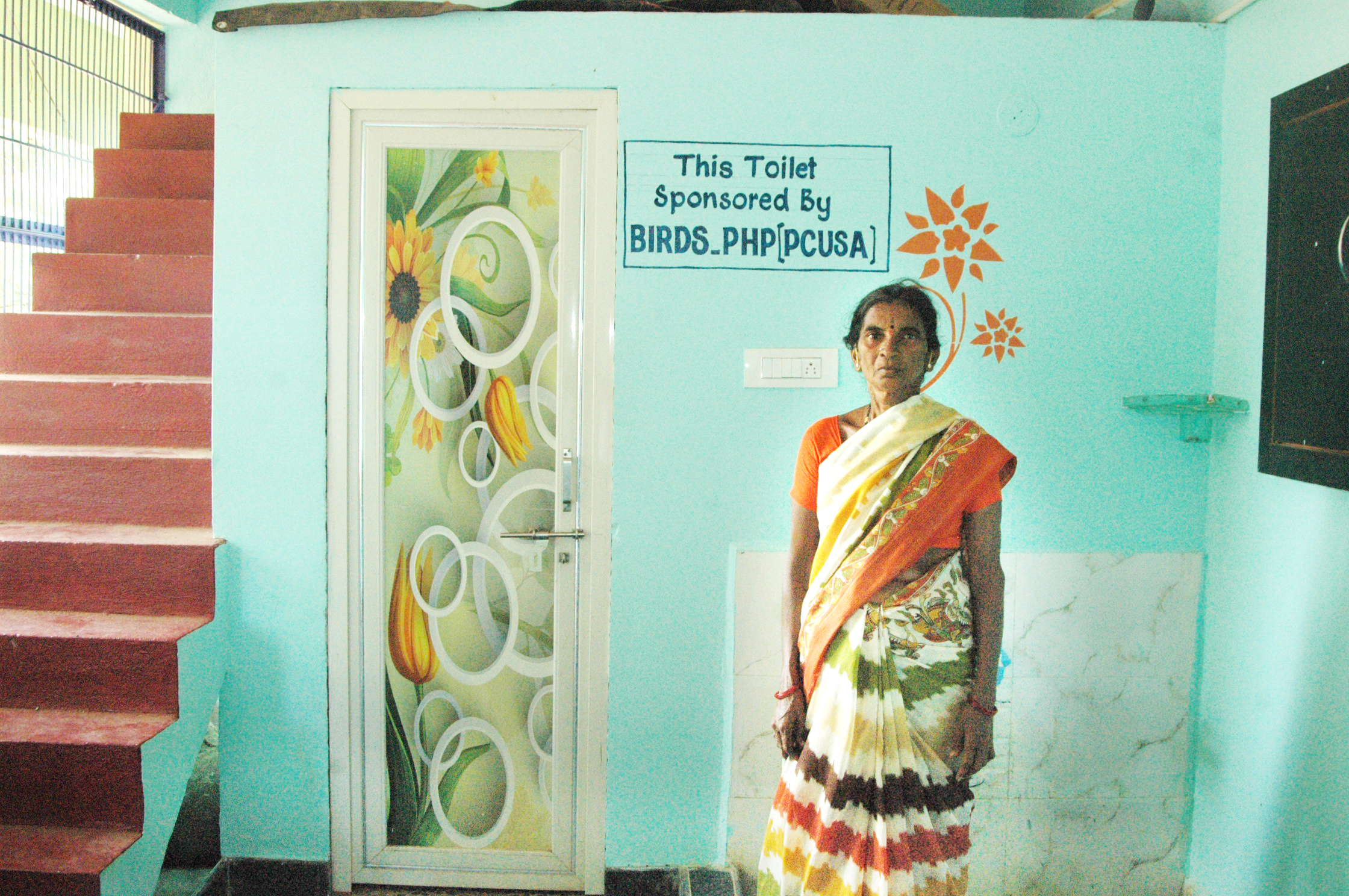By Eileen Schuhmann | Presbyterian Hunger Program

Cloudia Godfread leader of the Akwah women’s group is happy with the success of her chicken business. Photo courtesy of CISEGD.
On March 8, we celebrate International Women’s Day and the achievement of women as well as acknowledge the continued struggle for gender equality.
The Presbyterian Hunger Program (PHP) has a long history of partnering with women-led organizations as well as organizations that center the development and empowerment of women and girls.
Many of our partners train women and girls in farming, food processing, nutrition, and seed saving to ensure food security for them and their families. Savings clubs and micro-credit loans are engaged to provide women access to credit for income generating activities, insuring economic independence. Advocacy is engaged when women’s rights are neglected and ignored. And much of our work is focused on building women’s leadership and capacities.
Women on the Frontlines
The Joining Hands (JH) initiative of PHP has long recognized that women are often on the frontlines of movement work and that women are often the strongest justice advocates. Four of the 7 Joining Hands networks, Chethana (JH India), FONDAMA (JH Haiti), ARUMES (JH El Salvador), and Red Uniendo Manos Peru (JH Peru), are currently coordinated by women. And many more member organizations within individual networks are women-led.
Fabienne Jean, the coordinator of FONDAMA, states, “Haitian women face countless challenges that continue to test their resilience. Victims of all kinds of abuse and social injustice, these women continue to fight for their economic emergence and respect for their rights. As a woman working alongside these women, I see them as the backbone of sustainable development. I am the privileged witness of their strength, will and determination despite all the hard knocks of life. These everyday heroines are my inspiration and give me desire to move forward whatever the circumstances.”

Fondama and other organizations protesting against Hunger and corruption. Fabienne Jean is pictured in the middle. Photo by Lavady Jean.
The women-led organization Filomena Tomaira Pacsi (or Filomenas for short) is a member of the Red Uniendo Manos Peru and has been at the forefront of the women’s rights movement within the mining sector in Peru. Over the past twenty years, Filomenas has helped lead the movement for environmental health in the Andean city of La Oroya which is considered one of the most contaminated places in the world due to toxic emissions from a metals smelter once owned by a US holding corporation. Children and pregnant women are among the most vulnerable populations to the lead, arsenic, cadmium and mercury found in the environment. Even newborn babies have been detected with extreme levels of lead in their blood. Filomenas has played a significant role in calling attention to this travesty and the eventual shuttering of the smelter. The struggle continues to this day for environmental clean-up and specialized health care.
In Sri Lanka, women have been integral to the land rights campaign work of Praja Abhilasha (JH Sri Lanka). Francis Costa Priyankara, the coordinator of Praja Abhilasha, states, ”Our population consists of 52% women, but over 85% of land ownership belongs to men. However, women are the custodians and real caretakers of the land. Land is their life and part and parcel of their life struggle. So, today women are fighting and demanding their rightful rights to land.”
Women’s Safety and Security
300 million women and girls are without regular access to a toilet In India, which leaves them particularly vulnerable to sexual violence when they travel to discrete locations in the dark to defecate in the open. Our partner, Bharati Integrated Rural development Society (BIRDS), has been working to install toilets and washrooms in homes of very poor families.
One of the beneficiaries of a toilet, Mrs. M Sunitha states, “I was only going to open defecate in the nights and had lots of threats, now I am protected from dangerous illness and life threat.”
Our partners in Uganda, Action for Rural Women’s Empowerment (ARUWE), a women-led organization, have been working to promote the rights of women to land and property in Kyankwanzi district. In Uganda, like in many countries around the world, women receive unequal treatment when it comes to owning land. Many women find themselves landless after the death of their husband.
ARUWE has made it its mission to educate women on their rights to land under the law and has assisted them in accessing land services and securing land registration. Agnes Mirembe, the Executive Director of ARUWE, states, “We continue to dedicate our efforts to promoting equitable access and control over land as a production resource for rural women to enhance their meaningful contribution to food security and economic development.”
PHP has partnered with the women-led organization Hope Restoration South Sudan to provide women with access to land for farming as well as seeds and tools. South Sudanese women are typically in charge of securing food for the household. As women are obliged to travel further and further into remote locations in search of food and firewood for the family due to protracted conflict, they often encounter gender-based violence on their journey. Providing women with access to land and the necessary tools and skills to produce food at home liberates them from many of the safety risks posed by food insecurity.
To all the Sheroes doing the hard work out there to make the world a better place, we see you, we appreciate you, and PHP stands in solidarity with you!
The work of the Presbyterian Hunger Program is possible thanks to your gifts to One Great Hour of Sharing.




No comments:
Post a Comment